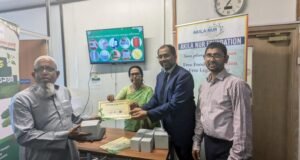
Migrant workers who are being exploited by agencies forcing them into precarious work under the minimum wage can also affect everyone in the workplace, says a University of East London researcher in a new book on migration and borders.
The book, ‘Bordering’, written by three academics from the University of East London, has put the spotlight on how immigration legislation affects everyone in society. It also suggests that as well as exploitation in the workplace, there are cases where British employers are required to play the roles of the border-guards, deciding whether someone is a legitimate border crosser employee.
The book, together with a related paper that has won the 2019 Sage Sociology Prize for Innovation and Excellence, was compiled by the University of East London’s Co-Directors of the Centre for Research on Migration, Refugees and Belonging (CMRB), Professor Nira Yuval-Davis (Honorary) and Dr Georgie Wemyss, together with former colleague Dr Kathryn Cassidy from Northumbria University.
The in-depth research for the book and paper was conducted in London, Dover and Calais between May 2013 and June 2015 and explored bordering processes from differentially situated social positionings within everyday life.
Dr Wemyss and Professor Yuval-Davis explained that in the book they wanted to show that borders and borderings have moved from the margins into the centre of political and social life.
“We aimed to show how bordering has redefined contemporary notions of citizenship, identity and belonging for all, affecting hegemonic majorities as well as racialised minorities in their everyday lives, while creating growing exclusionary ‘grey zones’ locally and globally,” Dr Wemyss said.
Dr Wemyss also highlighted other issues that came up in their findings which were of concern. “In our studies, we also found that the immigration regulations have spread a sense of anxiety and precarity, far beyond the realm of low paid agency workers or people with questionable rights to work.
“The sheer volume of paperwork and its complexity can put people off. We also saw that everyday employment bordering can have a greater impact on women with limited opportunities, and there were knock on effects on people wanting to rent somewhere to live.”
Professor Yuval-Davis added that another issue they found was that those who do not carry passports could be potentially guilty of illegal work until otherwise proven. “Overall this can make the racialised boundaries between those who ‘belong’ and those who ‘do not’ a more central feature of everyday life in London and elsewhere. As a result, there is a hostile environment, and this hostile environment becomes hostile for everyone.”
Dr Wemyss pointed out that as the UK has voted to exit the EU since the fieldwork for the study, she thought that Brexit had strengthened the political project of belonging that was one of the major factors in the Brexit vote. “This can be seen as one outcome of the divisive effects of everyday bordering technology.
“In the related article we are focusing on employment as an illustrative example of how everyday bordering is experienced and viewed differently by individuals of differential positionings, identifications and normative value systems. We show how this ‘hostile environment’ has a deep impact on the lives of irregular migrants. However, we also show how it affects other migrants, members of racialised minority groups as well as all other members of the society.”
The study has covered a wide variety of issues, including the problems migrants experienced in securing rental of places to live and examples of enforcement raids by Border Force officers on some employers. Gathering the correct paperwork to satisfy senior managers for some employers was also often a problem.
“To ensure an intersectional analysis of bordering, we tried, as far as possible, to interview women and men from a range of ethnic, religious and socio-economic backgrounds, as well as with different personal and professional positionings,” Professor Yuval-Davis added.
The project was part of a much bigger EUBorderscapes project, led by the University of Eastern Finland.
The authors of ‘Bordering’ have been invited to a special panel at the British Sociological Association’s Annual Conference this year, related to the subject.
They have worked with charities and civil society organisations to raise the issue of bordering through their film ‘Everyday Borders’. It was shown in Parliament in 2016 when Parliament was debating the 2016 Immigration Act and the issues were discussed at events around the country. It is available for free on Vimeo: https://vimeo.com/126315982
The Book ‘Bordering’ is available from Polity Press, 2019 ( http://politybooks.com/bookdetail/?isbn=9781509504947). The related paper can be found at https://journals.sagepub.com/doi/full/10.1177/0038038517702599
Professor Yuval-Davis has also won the ISA Lifetime achievement award in 2018 (https://www.youtube.com/watch?v=9NDTmcAbo94) . She was featured this week on BBC Radio 4 ‘s Thinking Allowed programme discussing the book ‘Bordering’ in detail with programme presenter Laurie Taylor.
The SAGE Prize for Innovation and/or Excellence is awarded annually to each of the British Sociological Association’s prestigious journals. The winning paper from each journal is judged to represent innovation or excellence in the field.
Don't Miss
- Rizvi rejects move to make July Charter a core principle of constitution
- Khaleda Zia urges govt to ensure advanced treatment for Farida Parveen
- Country’s 95% primary kids exposed to nicotine
- 4 die ‘inhaling toxic gas’ in Moulvibazar tea garden
- July movement’s impact on classes reflected in SSC exam results: Sylhet board chairman
 Weekly Bangla Mirror | Bangla Mirror, Bangladeshi news in UK, bangla mirror news
Weekly Bangla Mirror | Bangla Mirror, Bangladeshi news in UK, bangla mirror news







